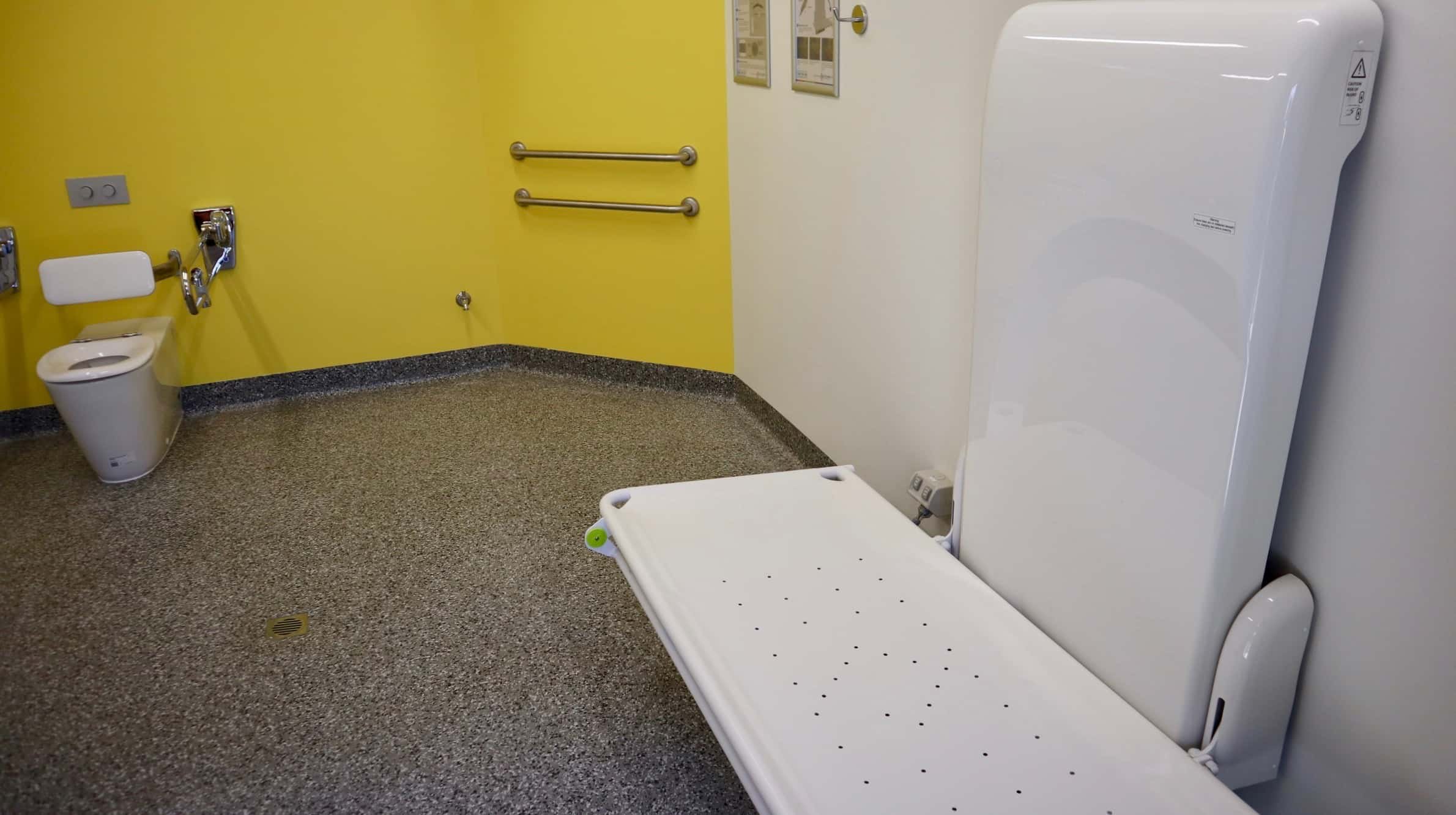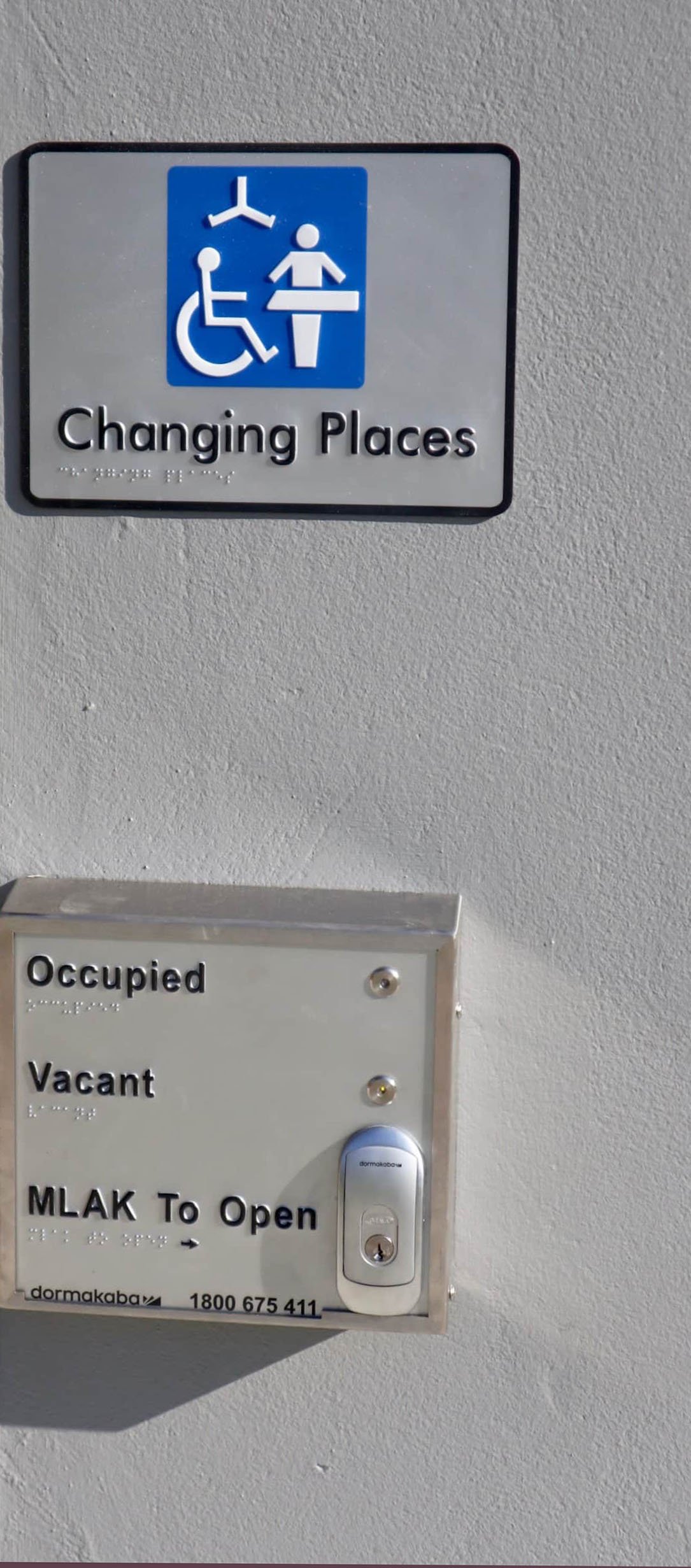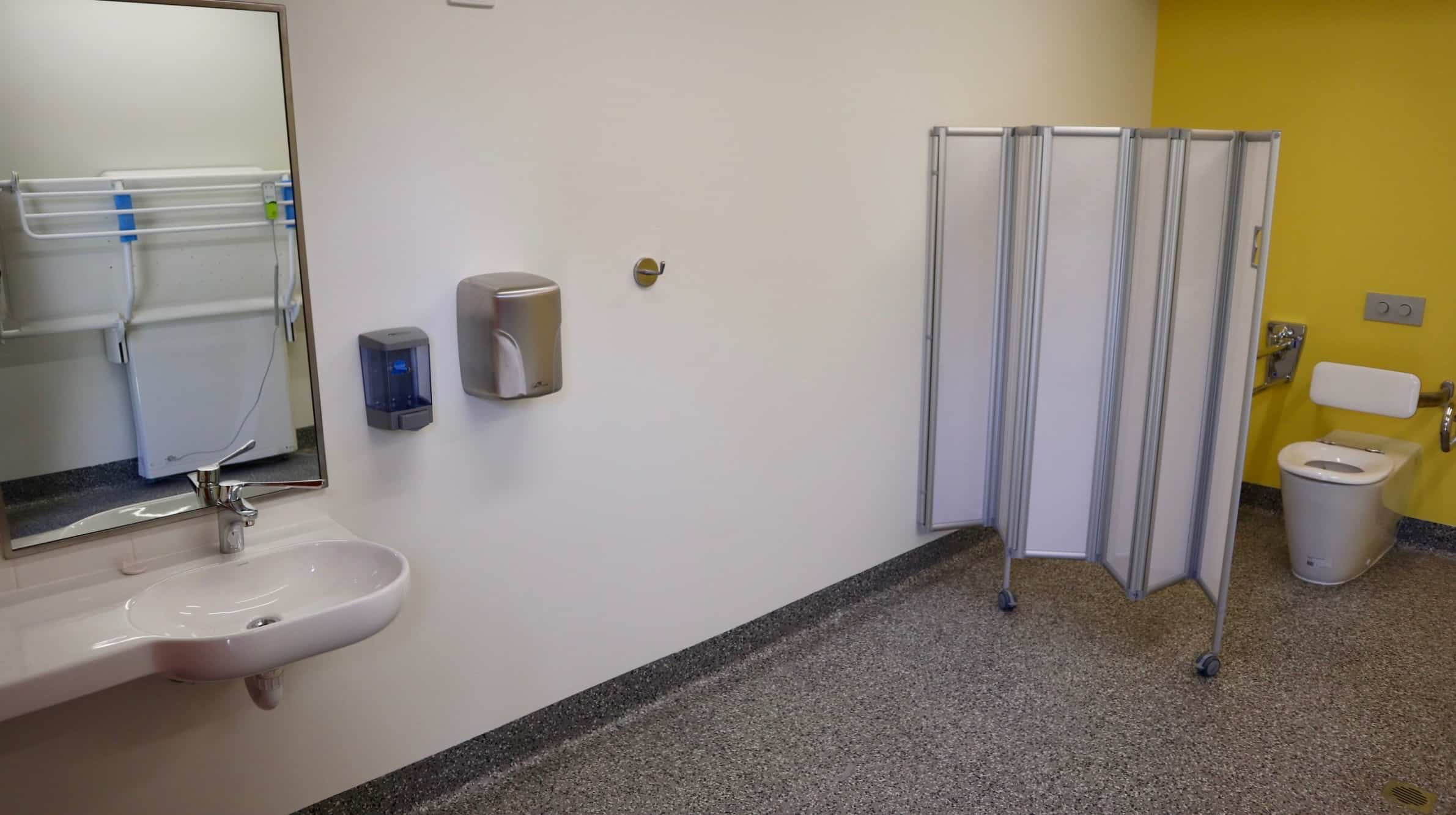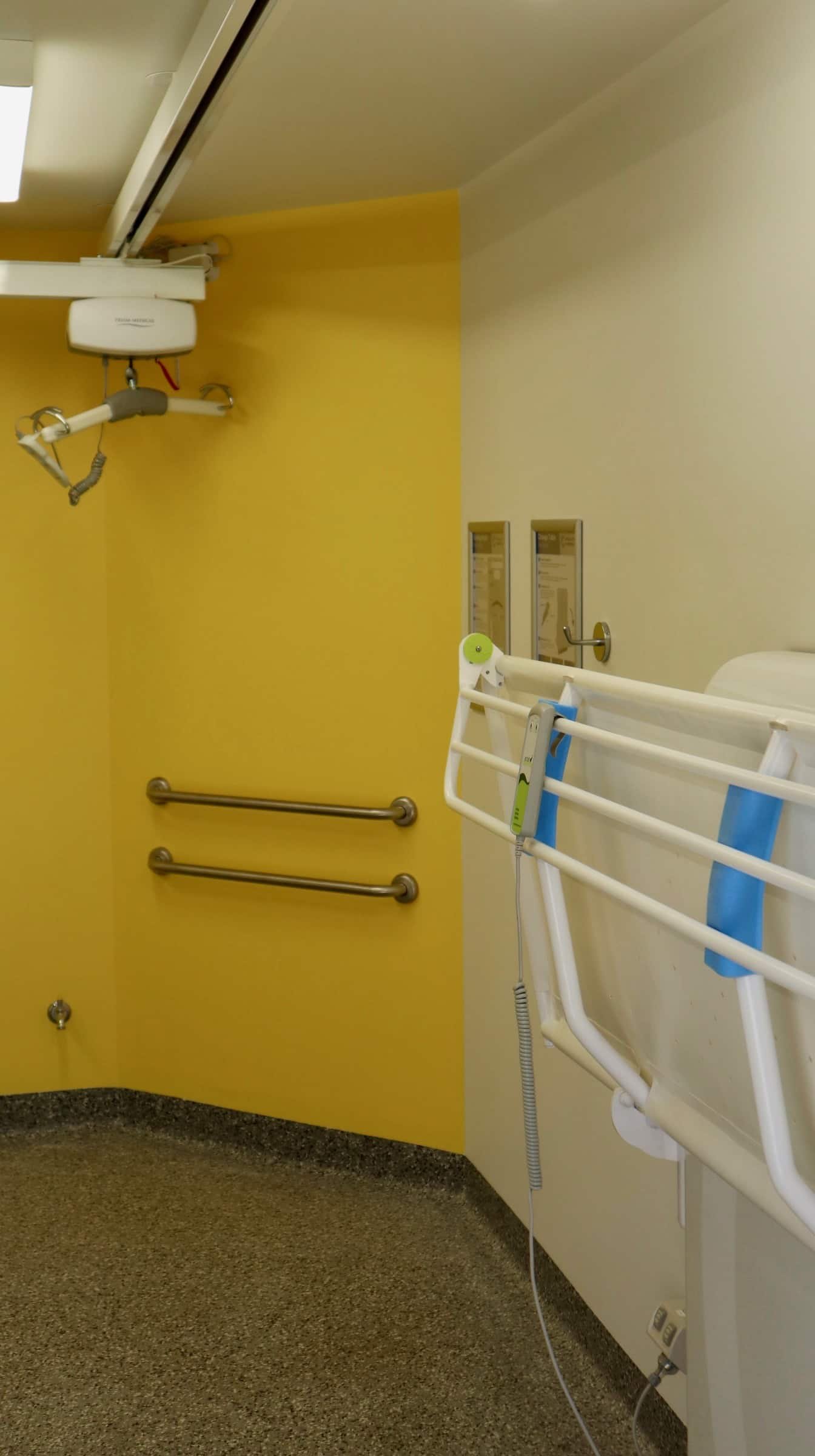Changing Places and Changing Lives
People are missing out on life experiences and it just isn't right.
Most of us tend to take for granted that whenever we attend an event or enjoy our great Aussie outdoors we will have a loo and a sink available . The requirement for personal elimination is barely a consideration - we’ll just duck in and out - no problems at all. But for as many as 25% of us there is much more involved in performing our most basic physical need…and with the same dignity and discretion afforded to the majority.
For every physically disabled person and their support personnel the function of toileting is generally the forethought when any outing is mooted - and the more profound the disability the greater the requirement to have somewhere safe, hygienic, comfortable and dignified. These spaces need to be large enough to accomodate support people, wheelchair transfers and medical equipment.
Innovation at its Best
However, it is truly exciting to know that over the last 13 years these issues are being addressed, and problems are being remedied.
I had the honour of attending the soft opening of Melbourne’s Knox City Council’s unveiling of its’ inaugural Changing Places facility. A fully accessible public bathroom and change facility in outer Melbourne’s Ferntree Gully.
Wally Tew Reserve is a special little pocket of parkland where Australian native flora mixes beautifully with deciduous oaks and birches. A fenced-off modern playground and the local library are mere metres away woven together by small patches of verdant lawn and accessibly friendly pathways. The oval a few metres further away again is home to local VFL Club the Eagles and hosts annual community festivals such as Carols By Candlelight and the Knox Festival. In short - it’s seeing a lot of community action.
I am constantly in awe of those people who are true social justice warriors, overcoming barriers and reshaping not just how we do things but how we think and The Changing Places concept was designed by just that calibre of people. The project began in 2006 by a socially minded consortium in the UK which now boasts over 1000 facilities.
The key requirements of a Changing Places space is that it has to provide:
• a height-adjustable adult-sized changing bench
• a tracking hoist system
• enough space
• safe and clean environment
• shower (optional)
An Australian consortium called Changing Places Victoria led by the Maroondah City Council established a relationship with the UK led group in 2012 and so continued this advancement of human equality down under. Australian businesses or governments, councils and agencies can easily access the design guidelines and industry support required to install these life-enhancing spaces by visiting the Changing Places website.
Key Planning - MLAK
We all know that vandalism is a societal anathema and we have all experienced downright disgusting public toilet experiences as a result of such defacing and destruction. This problem is eliminated by the genius deployment of the MLAK locking system used in most Changing Places facilities.
MLAK stands for Master Locksmiths Access Key and was developed in 1994 for use in national Parks and many Council municipalities, elevators at railway stations initially. Incidentally, the MLAK can also be used for public child safety areas that have pool fences installed with an accessibly positioned lock release called an ACLatch.
An MLAK key can be obtained after written proof of disability or a medical authority or copy of Disability Parking Permit or Disability Card. I have added the application form accurate as of May 2019 in this post.
In Conclusion - Inclusion At It’s Best
The advent of these facilities has not only made travelling and being entertained much more enjoyable for families as a whole but the safety of both the disabled and their carer is protected.
With such control and restrictions of the MLAK, we can be assured that the disgrace of laying down on germ-ridden floors or sitting on hard, cold and dirty toilet seats is becoming history. Support personnel no longer need to worry about the physical effort and potential harm that comes from manually assisting.
Someday soon all of us can nonchalantly roll and walk around any local community event enjoying and living in each moment knowing it won’t be marred by indignity and difficulty.
Happy inclusive playing and travelling,






